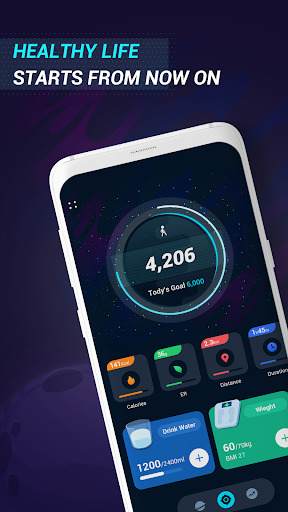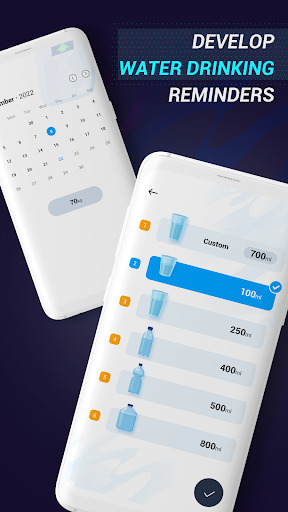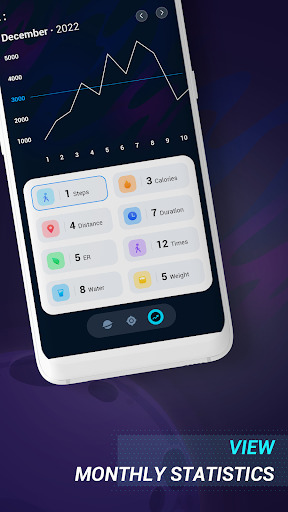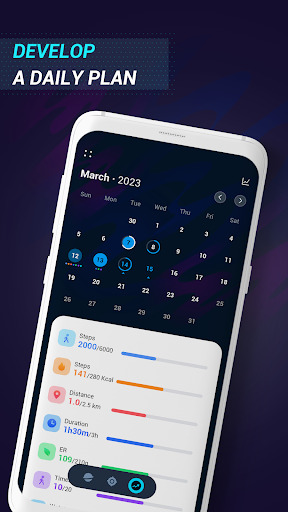Popular Now
Introduction
A pedometer counts steps to motivate and track physical activity. Evolving from simple mechanical devices to advanced digital trackers, they now offer various features.Key Features
Basic Functions
- Step Counting: Measures steps taken.
- Distance Tracking: Estimates distance based on steps.
Advanced Features
- Calorie Tracking: Calculates calories burned.
- Sleep Monitoring: Tracks sleep patterns.
Types of Pedometers
Basic Models
- Clip-On Devices: Simple and affordable.
- Digital Displays: Shows step count.
Advanced Models
- Wearable Devices: Includes fitness trackers and smartwatches.
- App Integration: Syncs with apps for detailed tracking.
Benefits
- Motivation: Sets and tracks goals to boost activity.
- Health: Increases physical activity and improves fitness.
Choosing the Right Pedometer
Considerations
- Accuracy: Choose one with precise step counting.
- Features: Decide if you need extras like calorie tracking.
Budget
- Price Range: From basic to advanced models.
- Value: Assess if the features justify the cost.
Top Pedometers
Fitbit Charge 5
- Features: Comprehensive health tracking.
- Cons: Higher price.
Garmin Vivosmart 4
- Features: Stylish with advanced features.
- Cons: Limited battery life.
Omron HJ-320
- Features: Reliable and affordable.
- Cons: Lacks advanced features.
Comparison
Compare features, accuracy, and design to find the best pedometer for your needs and budget.Effective Use
- Placement: Securely attach or wear for accuracy.
- Monitoring: Track and adjust goals regularly.
Challenges
- Accuracy: May not be precise during some activities.
- Feature Limitations: Basic models lack advanced insights.
Conclusion
Pedometers are useful for tracking steps and improving health. Choose based on your needs, features, and budget to enhance your fitness routine.-
Developer
Jersey Studio
-
Category
Health & Fitness
-
Version
2.0.1
-
Downloads
1M
Pros
👍 1. Improved fitness tracking: A pedometer-step counter application allows users to easily track their daily steps taken, distance traveled, and calories burned. This information can be helpful for setting and achieving fitness goals, as well as monitoring progress over time. By having a clearer understanding of their activity levels, users can make more informed choices about their health and wellness.
👍 2. Motivation and accountability: Many pedometer-step counter applications offer features such as goal setting, progress tracking, and challenges. These features can serve as powerful motivators to stay active and meet daily activity targets. Additionally, some applications provide social sharing capabilities, allowing users to connect with friends and family to create a sense of camaraderie and accountability.
👍 3. Accessibility and convenience: Pedometer-step counter applications are typically available for download on smartphones, which makes them easily accessible to a wide range of users. By utilizing the built-in sensors in smartphones, users can track their steps and activity levels without the need for additional gadgets or accessories. This makes it a convenient and cost-effective option for individuals who want to monitor their daily activity levels.
Cons
👎 1. Accuracy: One of the main shortcomings of pedometer applications is the lack of accuracy in counting steps. These applications often rely on the sensors in your smartphone, which may not be highly precise in detecting steps. This can result in inaccurate step counts, especially if you engage in activities that don’t involve typical walking movements, such as jogging or stair climbing.
👎 2. Limited features: Many pedometer applications offer basic functionality, such as step counting and distance tracking. However, they often lack advanced features that can provide additional insights into your physical activity, such as tracking calories burned, monitoring heart rate, or analyzing exercise intensity. If you are someone who wants more than just step counting, a pedometer application may not be sufficient.
👎 3. Battery drain: Pedometer applications continuously monitor your movement using the sensors in your smartphone, which can lead to significant battery drain. These applications have to run in the background and use up processing power to accurately count steps, which can result in reduced overall battery life. This is especially problematic for users who rely on their smartphones for various other tasks throughout the day and cannot afford to constantly recharge their device.





















































